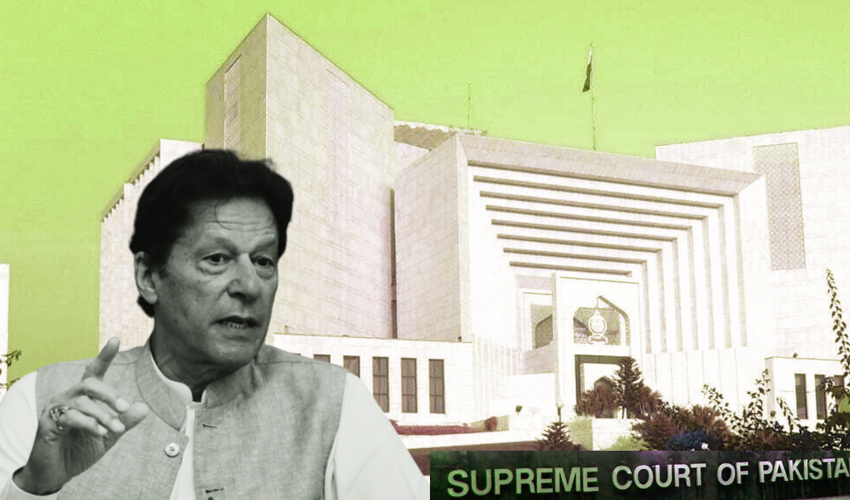ISLAMABAD: The stage is set for a hearing on the intra-court appeal against the Supreme Court’s decision regarding the National Accountability Bureau (NAB) amendments. Scheduled for 11:30 AM, the proceedings hold significant weight as former Prime Minister Imran Khan, a key party in the case, is set to present his arguments.
The Supreme Court, led by former Chief Justice Umar Ata Bandial, had previously accepted an appeal from Pakistan Tehreek-e-Insaf (PTI) founder Imran Khan, declaring the NAB amendments introduced by the PDM coalition government invalid.
Challenging this verdict, the federal government promptly filed an appeal under the Supreme Court Practice and Procedure Act. The first hearing into the intra-court appeal was held in October last year, followed by the second hearing just two days ago.
In the intra-court appeal, the government also named Imran Khan as a party. Responding to the Supreme Court’s notice, which asked for his input, the former premier expressed his intent to present his case personally.
At the last hearing, the Supreme Court bench, headed by Chief Justice Qazi Faez Isa, granted Khan permission to deliver his statement via video link.
On May 14, the Supreme Court accepted Khan’s request to present his arguments himself on the intra-court appeals against the nullification of the NAB amendments.
A five-member Supreme Court bench, led by the Chief Justice of Pakistan (CJP), is currently hearing these intra-court appeals. The bench allowed the former prime minister to present his arguments through a video link.
During the hearing, Imran Khan’s letter was presented in the Supreme Court. The CJP noted that according to the letter, Khan wished to appear in person to present his arguments. Justice Jamal Khan Mandokhel mentioned that it was up to the petitioner to decide whether to appear in person or through counsel. Justice Athar Minallah emphasized that if Khan wanted to appear personally, he could not be stopped.
The CJP remarked that the issue at hand was about legal amendments, not personal rights. If it were a personal matter, Khan would have definitely appeared. He questioned how a common man could assist the court effectively, and noted that if the appearance in court was to serve another purpose, it would need to be examined.
CJP Isa also commented on the unusual situation, noting that the NAB was supporting the government in this case. He stressed that the PTI founder should be given an opportunity to hear the other side’s position, as they are opposing parties not represented in court.


